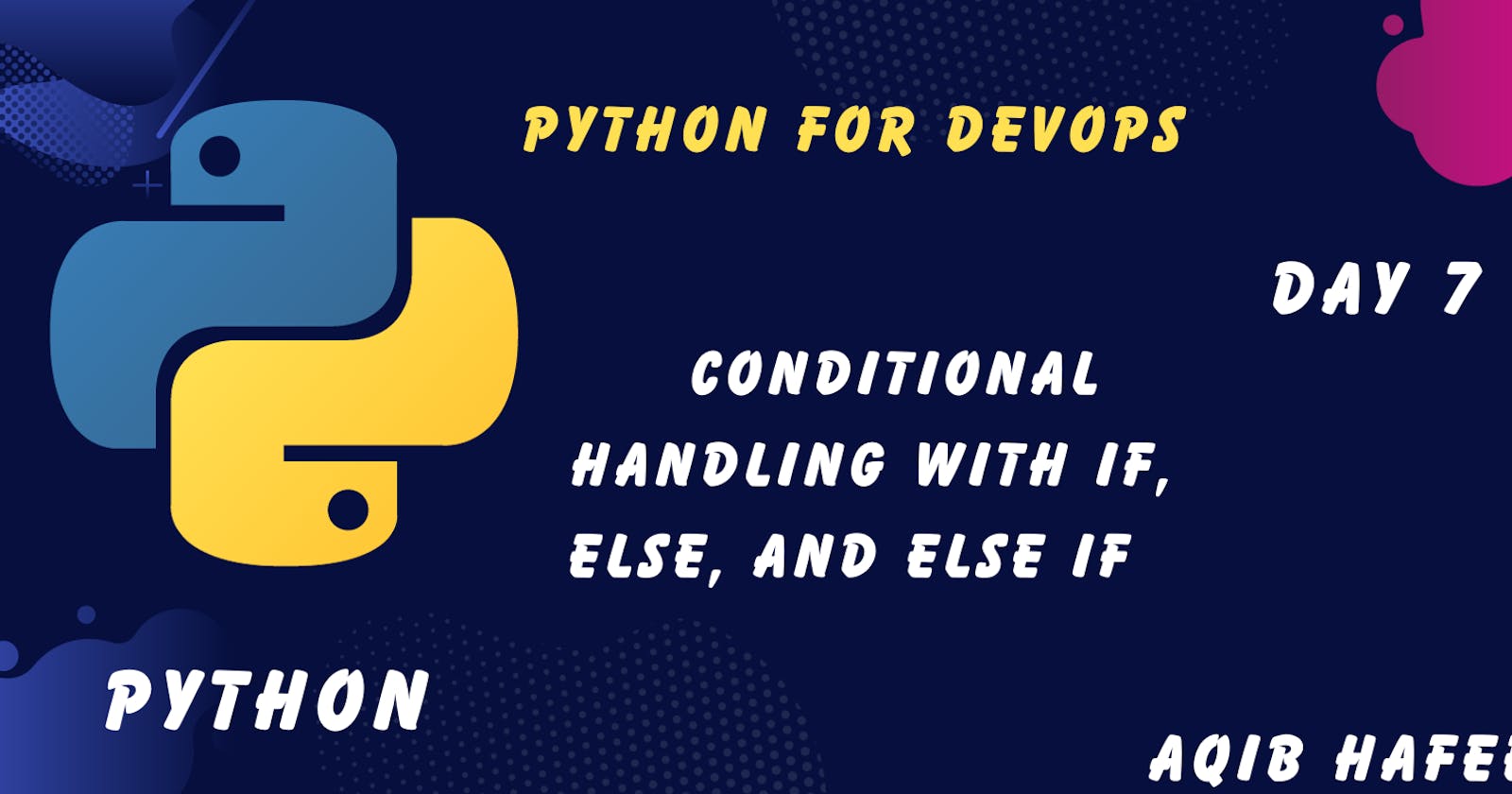introduction
In the world of DevOps, automation and decision-making based on specific conditions are essential. Python, with its straightforward syntax and powerful conditional statements, provides the perfect platform to build robust automation scripts. In this article, we'll explore the basics of conditional handling using IF, ELSE, and ELSE IF statements in Python and how they can be applied in the DevOps context.
Conditional Statements
Conditional statements are a way to control the flow of your program based on certain conditions. They allow you to execute specific code blocks if certain conditions are met. In Python, the primary conditional statements include:
IF: Executes a block of code if a specified condition is true.ELSE: Executes a block of code if theIFcondition is false.ELSE IF(written asELIFin Python): Allows you to specify additional conditions to test if the previousIForELIFconditions are false.
The IF Statement
The IF statement is the most fundamental conditional statement in Python. It allows you to execute a block of code if a specified condition is true. The basic syntax of an IF statement is as follows:
if condition:
# Code to execute when the condition is true
In the context of DevOps, IF statements are incredibly useful for making decisions based on various conditions. Here are some practical examples:
Checking the availability of a server or service and taking appropriate actions if it's down.
Verifying if a specific file or directory exists before proceeding with a configuration task.
Evaluating resource utilization to trigger scaling operations in a cloud environment.
The ELSE Statement
The ELSE statement is used in conjunction with the IF statement. It allows you to specify a block of code to execute when the IF condition is false. The basic syntax is as follows:
if condition:
# Code to execute when the condition is true
else:
# Code to execute when the condition is false
In DevOps, ELSE statements are vital for handling alternative scenarios. Here are some practical applications:
If a server is not responding, execute a failover procedure.
When a package update fails, roll back to the previous version.
If a backup process is successful, send a notification; otherwise, log an error.
The ELIF Statement
The ELIF statement allows you to specify additional conditions to test if the previous IF or ELIF conditions are false. It's commonly used when you have multiple conditions to consider. The syntax is as follows:
if condition1:
# Code to execute when condition1 is true
elif condition2:
# Code to execute when condition1 is false, and condition2 is true
else:
# Code to execute when all conditions are false
In DevOps, ELIF statements are helpful for handling complex decision trees. For example:
Checking the health of various components in a multi-tier application stack.
Validating configuration settings with multiple possible states.
Handling different failure scenarios during deployment processes.
Practical Examples
Let's see some practical examples of conditional handling in DevOps using Python:
Example 1: Server Availability Check
server_status = check_server_availability()
if server_status == "online":
print("Server is online. Proceed with deployment.")
else:
print("Server is offline. Initiating failover.")
Example 2: Software Version Check
installed_version = get_installed_version()
latest_version = get_latest_version()
if installed_version == latest_version:
print("Software is up to date.")
else:
print("Software update available. Starting update process.")
Example 3: Resource Scaling Decision
current_utilization = get_resource_utilization()
if current_utilization > 80:
print("Resource utilization is high. Scaling out.")
elif current_utilization < 20:
print("Resource utilization is low. Scaling in.")
else:
print("Resource utilization is within acceptable limits.")
Conclusion
Conditional handling with IF, ELSE, and ELIF statements in Python is a fundamental concept in DevOps automation. These statements allow you to make decisions, handle various scenarios, and control the flow of your automation scripts effectively. Understanding how to use them and applying them to real-world DevOps tasks can greatly enhance your ability to manage and maintain complex infrastructure and processes.
